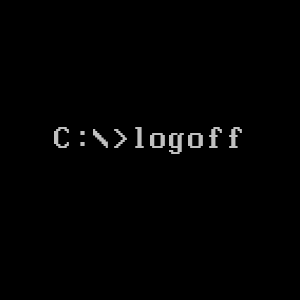Permanently Deleted
The trick to dialectics isn’t addition of a thesis and an antithesis, it’s about negation. You remove the non-truths of the original to find the remaining realities. It’s how Marxists can argue that communism is the continuation of enlightenment thought after the failures of bourgeois democracy. Liberalism carries some of the truths of the enlightenment but doesn’t bring them fully to reality. Dialectics is negating the untruths to fully realize what should be there.
Like Zizek’s example. Man walks date back to her apartment, she asks if he’d like to come up for coffee. The man says “I don’t drink coffee,” she responds “it’s ok I don’t have any coffee.” We discover the silent truth of the situation by negating the excess lies surrounding it
What was the saying again? That debates are less above proving who is right but about coming closer to the truth.
You should forget the whole "thesis antithesis synthesis" thing. It's simplified to the point of being completely false, at least when it comes to Marx's dialectics. Here's another way to see dialectics, that is only simplified to be kind of wrong:
Dialectics, instead of looking at the world as a group of things, looks at it as processes and relations. In the common-sense view a 'thing' also, of course, can have relations and be part of processes, but dialectics chooses to view its objects as fundamentally encompassing their past, and possible futures (it's a process), and its relations to other things.
It also has "tools" for studying this world. It often looks at types of relations, like interpenetration of opposites, quantity/quality, identity/difference, and contradiction.
There are only non-smokers, cause there are smokers. The social relation of a "non-smoker" exists only cause there are smokers and the negation of it becomes the non-smoker.
The hierarchy between the hegelian master-slave pair is that the master holds the authority and no power, while the slaves hold no authority but all the power (they are who actually do things). This means that it is actually the slaves who are powerful.
I always think of this passage from Zizek's The Parallax View. The iterations on sexuality provide an example of "dialectical progress"
The starting point here is copulation a tergo, the sexual act in its animal, presubjective immediacy; we then go on to its immediate (abstract) negation: masturbation, in which solo self-excitation is supplemented by fantasizing. (Jean Laplanche argued that masturbation-with-fantasy is the elementary, zero-level, form of the properly human drive as opposed to the animal instinct). What follows is the synthesis of the sexual act proper in a missionary position, in which face-to-face contact guarantees that full bodily contact (penetration) remains supplemented by fantasizing. This means that the "normal" human sexual act has the structure of double masturbation: each participant is masturbating with a real partner. However, the gap between the raw reality of copulation and its fantasmatic supplement can no longer be closed; all variations and displaces of sexual practices that follow are so many desperate attempts to restore the balance of the two.
Thus a dialectical "progress" thus first goes through a series of variations with regard to the relationship between face, sexual organs, and other bodily parts, and the modes of their respective uses; the organ remains the phallus, but the opening to be penetrated changes (anus, mouth). Then, in a kind of "negation of negation" not only does the object to be penetrated change, but the totality of the person who is the partner passes into its opposite (homosexuality). In a further development, the goal itself is no longer orgasm (fetishism). Fist-fucking introduces into this series an impossible synthesis of hand (the organ of instrumental activity, of work) and vagina (the organ of "spontaneous" passive generation). The fist (focus of purposeful work, the hand as the most tightly controlled and trained part of the body) replaces the phallus (the organ out of conscious control par excellance, since its erection comes and goes independently of our will), in a kind of correlate to somebody who approaches a state that should emerge "spontaneously" in a well-planned instrumental way (a poet who constructs his poems in a "rational" way, for instance, is a poetic fist-fucker). There are, of course, further variations here which call for their speculative deduction: in masculine masturbation, the vagina, the ultimate passive organ, is substituted by the hand, the ultimate active organ, which passivizes the phallus itself. Furthermore, when the phallus penetrates the anus, we obtain the correct insight into the speculative identity of excrementation and insemination, the highest and the lowest. There is no room here to explore further variations to be deduced: doing it with an animal, with a machine doll; doing it with many partners, sadism, masochism...the main point is that the very "progress" from one form to another is motivated by the structural imbalance of the sexual relationship, which condemns any sexual practice to eternal oscillation, between the "spontaneous" pathos of self obliteration and the logic of external ritual ("following the rules"). Thus the final outcome is that sexuality is the domain of "spurious infinity" whose logic, brought to an extreme, cannot but engender tasteless excesses like those of spermathon contests - how many men can a woman bring to orgasm in an hour, and so on....for a true philosopher, there are more interesting things in the world than sex.
After the revolution, we will cum by holding hands and enjoying each others' company.
Philosophers only mop floors that they might dirty them again in the future. We are never truly at the end of history. Only at an in-between place, from where we can observe the cum-parties that preceded us and anticipate the cum-parties that have yet to occur.
And negate the act of ejaculation from the active climactic realization of the one final cumshot splatter among infinite potentials into a passive ephemerality subsumed by the water flow entirely?
Don't synthesize your yuck with my yum.
All things are the manifestations of their past and present together, and by engaging in conflict with opposing forces, change to become something different, in reflection of that conflict
Think of it less like combination and more like conflict and change. The dialectic between workers and capitalists doesn't result in a new completely solid merged class. It is the conflict and interaction itself, which changes both workers and capitalists, while keeping their core the same. Like a spiralling dance through time, where you change clothes and learn+invent new dance moves constantly.
To add on to this, synthesis is less the idea of merging two opposites, and more the inevitable result of two conflicting forces. Like a tug-of-war, even if one team wins it could have moved a lot farther if there was no opposing team.
Though not the pure use of dielectics, I tend to use it to understand the appropriate reaction to something. Last summer, there were large protests to defund the police, but the result was large cities deciding not to increase funding for a year or two. That was the synthesis of the protests and our police state.
So you're saying that instead of thinking about magnets, we should be considering the magnetic forces they exert on each other
Imagine, if you will, a nation state in the post-apocalypse resembling Rome. Now if we...
a nation state in the post-apocalypse resembling Rome
The Roman Empire existed for 1400 years (longer, if you toss in the Eastern Empire) and at every point people bemoaned the looming apocalypse.
Yet Rome's corruption, collapse, and dismembering did not bring about the End of Days. Neither did it spell the end of the city that bares its name. Nor the idea of Rome - a civilization spanning trade empire, built on the slave labor of vassal states - which echoed into the colonial era and the modern neoliberal one.
Rome's demise has been greatly exaggerated.
No that was the best response to a new vegas reference I have ever seen
Why explain, when we have memes?
meme text in case the image is unreadable
(SPEECH 100) thats not how fucking dialectics works you stupid cuck. I didn't study Hegel (plus continental philosophy in general) at Harvard for 7 FUCKING YEARS for some LOW LIFE KNOW IT ALL who's CLEARLY never fucking read Hegel as he would KNOW that HEGEL has NEVER FUCKING EVER used the terms "thesis, antithesis, synthesis" to start perpetuating these LIES at VERY SINGLE FUCKING OPPORTUNITY. this isn't Hegel my friend. No no no. Thesis, antithesis, synthesis was thought up by Fichte and it's clearly inferior to Hegel's dialectical method of imminent critique. Yes. It's called imminent critique. And dialectics is only ONE PART of Hegel's full method. Which again is called Imminent critique which you would know if you had ACTUALLY BOTHERED TO READ HEGEL ITS LITERALLY IN THE SCIENCE OF LOGIC YOU DUMB FUCKING PIECE OF SHIT. I honestly cannot believe 'the fucking arrogance to come onto this post, spouting that anti Hegel garbage. Where did you get your fucking info on dialectics? Fucking Jason Unruhe? Jesus fucking Christ I cannot deal with this bullshit right now I'm sorry I'm leaving I'm fucking leaving.
But back to serious posting, here's the best way I can explain dialectics. The idea that dialectics is the combination of two opposites to find some "more true" middle ground is a misunderstanding of dialectics. Rather, Hegelian Dialectics and Marxist Dialectics are concerned with studying the contradictions between things, and how those contradictions act as motive forces in society, economies, and so on. These can be the contradiction between man and nature, the contradiction between an owning class and a captive working class, the contradictions between a slave and their master, the inner contradiction between your desires and your needs, the contradiction between the interests of the individual and the interests of the collective, and so on and so on.
Some of these contradictions may be non-antagonistic, and therefore it is possible to reconcile these contradictory interests through the democratic methods of persuasion, debate, and education. Some of these contradictions are antagonistic, such as the contradiction between a master and slave, or the contradiction between a class who privately owns the means of production and means of subsistence for all of society and the class of captive workers who must be subservient to the interests of this ownership class in order to survive. In the case of these antagonistic contradictions, where it is not possible to reconcile these competing interests in a way that satisfies both parties, then a study of these contradictions would conclude that conflict is inevitable. This forms the basis of the Marxist theory of class conflict.
Mao's writings on philosophy are some of the most approachable and most accessible, so if you want to explore these ideas a bit further I would recommend " On Practice ," " On Contradiction ," and then finally, " On the Correct Handling of Contradictions Among the People."
They're all pretty short works, and "On Practice" is probably the best one to read if you're only going to read one of them, as it is written more to be explanatory. "On Contradiction" is a bit more philosophical, and builds off of "On Practice" which is why they are usually included together, and is probably more relevant to understanding the ideas behind dialectical thinking. And then "On the Correct Handling of Contradictions Among the People" gives you some practical ways of applying this thought process.
You're thinking about this wrong
Thesis:Antithesis:Synthesis :: FuckingAround:FindingOut:Cope
It's when you have to pay 750 bucks for insulin to not die
Essentially, It's the logic of change and contradiction.
When applied to materialism, you can analyze the history of society's various structures and their inner-contradiction to show how control of the productive-forces are critical and how logically the next steps after capitalism are socialism and communism.





